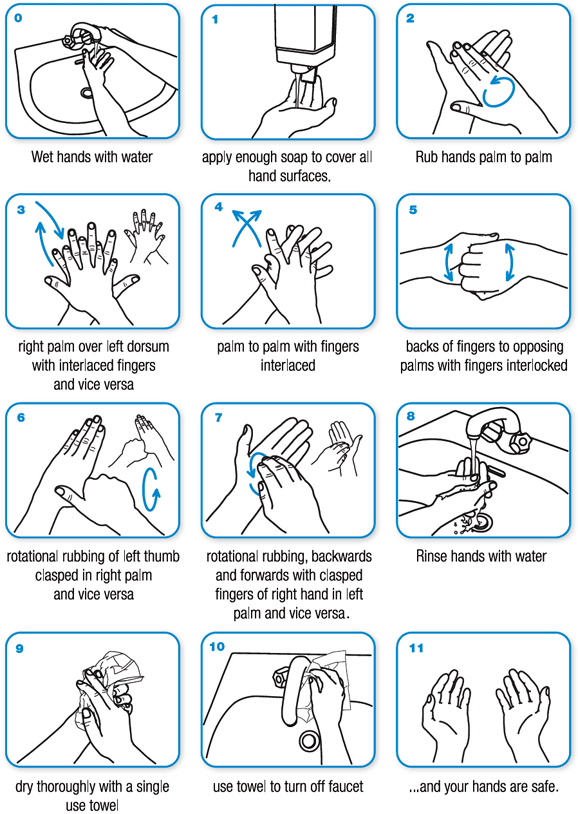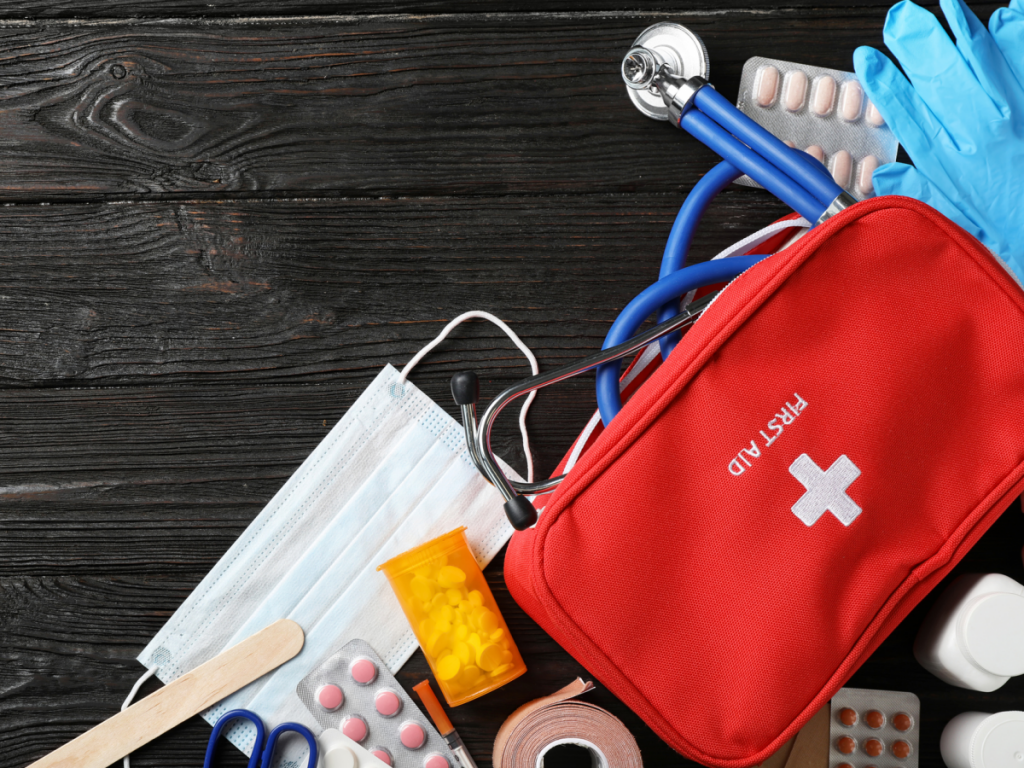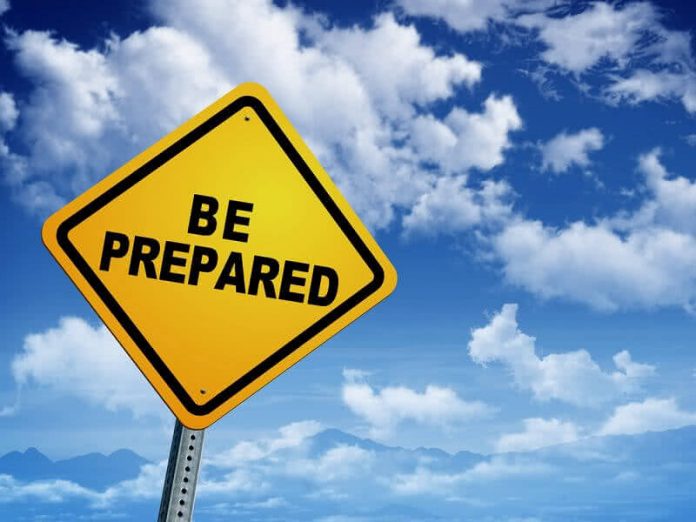A pandemic is a widespread contagious disease such as the Covid-19, which infects people in one part of the world but then spreads from one place to the next until millions—sometimes billions—are at risk.
Such widespread illness (and potentially deaths) can be extremely disruptive. Pandemics can lead to:
- Supply chains slowing down
- Weakened economies
- Schools or businesses closing
- Travel restrictions
- Misinformation, confusion, or panic
With everything that could happen during a pandemic, it’s understandable that people become anxious or afraid. But there are things you can do to help minimize the disruption for you and your family.
From what to stock up on to how to clean your home, here’s how to make sure you and your family are ready during these trying times.
But whatever you do, don’t panic.
- Plan and prepare ahead.
- Have food stored in your home.
- Have medical supplies in your home.
- Have savings.
- Have alternate fuel supplies.
- Have multiple communications methods.
- Prepare for self-medication.
- Understand and follow strict hygiene methods
- Practice social distancing – it makes a difference.
- Prepare to have children home from school.
- Volunteer your help; don’t be afraid to help.
Talk with the people who need to be included in your plan. Meet with household members, other relatives, and friends to discuss what the needs of each person will be.
Plan ways to care for those who might be at greater risk for serious complications. From the limited information about who may be at risk for severe complications from COVID-19 illness, it is possible that older adults and persons who have underlying chronic medical conditions may be at risk for more serious complications. If you or your household members are at increased risk for COVID-19 complications, please consult with your health care provider for more information about monitoring your health for symptoms suggestive of COVID-19.
Get to know your neighbors. Talk with your neighbors about emergency planning. If your neighborhood has a whatsapp group, consider joining it to maintain access to neighbors, information, and resources.
Identify aid organizations in your community. Create a list of local organizations that you and your household can contact in the event you need access to information, health care services, support, and resources. Consider including organizations that provide mental health or counseling services, food, and other supplies.
Create an emergency contact list. Ensure your household has a current list of emergency contacts for family, friends, neighbors, drivers, health care providers, teachers, employers, the local public health department, and other community resources.
Stock up the pantry
To prepare for a self-quarantine at home during the coronavirus pandemic, you should stock up a 14-day supply of food for every person — and pet — in your household. Focus on dry and canned goods that are easy to prepare.
Do your grocery shopping now, which will give you peace of mind in the event that you’re unable to leave home. Stock up on dried food such as pasta, grains, and legumes that have a long shelf-life and offer versatility for breakfast, lunch, and dinner. Other essential ingredients include canned goods such as beans, whole peeled tomatoes, soup, and evaporated milk; hot and cold cereal; and frozen fruits and vegetables. Chicken or vegetable stock, as well as bone broth, not only provide a delicious base for homemade soups, stews, and risotto, but can be soothing for anyone with a cold.

Stock up on big gallons of bottled water for 2 weeks.
Do you use cooking gas? Then stock up on an additional cylinder.
Practice good personal health habits and plan for home-based actions
In order to keep yourself and your home germ-free, make sure that you have a full supply of disinfectant wipes, hand soap, and hand sanitizer. Health officials recommend washing your hands often with soap and water for at least 20 seconds, especially after going to the bathroom, before eating, and after blowing your nose, coughing, or sneezing. Hand washing is really critical and is your best defense against spreading anything. Soap and water work best, or hand sanitizers when soap and water is not available.

source: WHO
Practice everyday preventive actions now. Remind everyone in your household of the importance of practicing everyday preventive actions that can help prevent the spread of respiratory illnesses:
- Avoid close contact with people who are sick.
- Stay home when you are sick, except to get medical care.
- Cover your coughs and sneezes with a tissue.
- Clean frequently touched surfaces and objects daily (e.g., tables, countertops, light switches, doorknobs, and cabinet handles) using a regular household detergent and water.
- If surfaces are dirty, they should be cleaned using a detergent and water prior to disinfection. Always follow the manufacturer’s instructions for all cleaning and disinfection products.
- Choose a room in your home that can be used to separate sick household members from those who are healthy. Identify a separate bathroom for the sick person to use, if possible. Plan to clean these rooms, as needed, when someone is sick. Learn how to care for someone with COVID-19 at home from resources online.
Make sure you have enough household hygienic products like soap, hand sanitizer, toilet paper, tissues, feminine care products, and diapers if you have small children in the household.
Your Medicine Cabinet
If possible, get a 30-day supply of your prescription medications.
Maintain a first-aid kit with supplies to treat common injuries.
To be prepared for any kind of emergency, the American Red Cross recommends keeping an at-home first aid kit to treat common injuries, including cuts, scrapes, swelling, sprains, strains and more.

This kit should include things like antibiotic ointment packs, gauze, bandages, thermometers, scissors, tweezers, and an emergency blanket.
Take note of other medical supplies you may need, such as contact lenses, contact solution, hearing-aid batteries, and over-the-counter medicines like pain relievers and cough and cold medicines.
If someone in your home uses a hearing aid, stock up on extra batteries.
Other miscellaneous medical supplies might include glasses, contact lenses, or syringes.
Over-the-counter medicines you may want to have on hand include pain relievers, stomach remedies, cough and cold medicines, vitamins, and fluids that contain electrolytes, according to the American Red Cross.
Take care of the emotional health of your household members. Outbreaks can be stressful for adults and children. Children respond differently to stressful situations than adults. Talk with your children about the outbreak, try to stay calm, and reassure them that they are safe.
Learn about your employer’s emergency operations plan. Discuss sick-leave policies and telework options for workers who are sick or who need to stay home to care for sick household members.
Stay in touch with others by phone or email with family and friends.
Do add to this list of being prepared in the comments section below…
Disclaimer: This information has been aggregated from various online sources.





